| Umělec magazine 2010/2 >> Postrock 101 | List of all editions. | ||||||||||||
|
|||||||||||||
Postrock 101Umělec magazine 2010/201.02.2010 Petr Ferenc | The End of the Western Concept | en cs de ru |
|||||||||||||
|
I.
“And how deep would you say this pool is?” asks the guide in the cave, pointing over the railing at a puddle of crystal clear water with a slight emerald green tinge. It looks as if you could stand in it with your head above the water, but the guide quickly corrects our error, “Six meters. Isn’t it amazing how the water can make the bottom appear so much closer?” Any decent cave tour will have such a pool of water, just as any decent castle has a portrait whose eyes seem to follow you around the room. (Who knows what it does after you disappear to the next room?) These are banal but requisite parts of the theater that tour guides play with their charges, and we usually accept them with a patronizing, all-knowing smirk. And then, some time later, comes a moment when we remember these moments and, half consciously, half against our will, begin to take pleasure in their blatant stupidity. If we are properly attuned, we may find unexpected depths and hidden recesses below the surface (of a shallow, emerald green pool) and a dozen ships may set sail from the dull aristocrat’s lachrymose eyes. II. The musical genre known as post-rock reconstructs just these kinds of moments, and Godspeed You! Black Emperor are true masters of creating music that verges on the ill-defined boundary between banality and mystery, pomposity and simplicity, introversion and exhibitionism. It is almost as if the first half of the 1990s, which saw the emergence not only of GY!BE but also similar bands such as Tortoise, Labradford and many others, had some kind of problem with beauty and simplicity, which one could only experience by sneaking anonymously into grimy, disreputable cinemas, collar turned up to hide one’s face. The music of these bands reveals a clear yearning for the monumental, for vaulted buildings and temples of sound full of daring curves and light; a yearning for a thousand violins and heavenly trumpets, the vibrations left in the wake of their individual tones forming a web of simple but refined motifs. It is the music that plays out in the mind of the cheerful guitarist lazily strumming away on his instrument—is he accompanying his dreams or are they accompanying him? In the same way, singing in the shower, singing along while wearing headphones, or other aural dream-states are such intimate affairs, that most people avoid engaging in them in public. Post-rock, however, opted for a musical “coming out.” III. Post-rock succeed as best as it could—halfway! The genre’s unconventional, seemingly random combination of musical motifs appeals to all those who have ever spent some time in a practice space, jamming on their instruments. Because this is exactly what post-rock’s confounded, endless ‘warming up’ often sounds like. The music’s simplicity is intuitive, without words and sounds so miraculous to all involved that the idea of adding any other layer of meaning would never occur to them. In this way, post-rock allows experienced musicians to return to the enchantment of first picking up an instrument. IV. In order not to have to be ashamed of this approach, the musicians spice up their music with mysterious found sounds, hidden messages, anonymity, images that are only remotely related to the music, and so on. This works especially well if the listener is not from the musicians’ home country: Are those absurd drawings, found photographs, audio samples of televangelists, and other layers of audiovisual material typical features of the musicians’ country, an inside joke among the musicians, or completely arbitrary combinations in which the listener can find more meanings than originally intended? The answer, of course, is all of the above, but how much of each? “As needed, by eyeballing (ear-drumming) it,” as a proper cook would say. You have to be capable of estimating it. After years of training and contemplation, you learn to guess the depth of the pool of water in the cave, or you realize that it doesn’t matter and the guide, with his arbitrary questions, is just an idiot. Translated from the Czech by Stephan von Pohl.
01.02.2010
Recommended articles
|
|||||||||||||
|
04.02.2020 10:17
Letošní 50. ročník Art Basel přilákal celkem 93 000 návštěvníků a sběratelů z 80 zemí světa. 290 prémiových galerií představilo umělecká díla od počátku 20. století až po současnost. Hlavní sektor přehlídky, tradičně v prvním patře výstavního prostoru, představil 232 předních galerií z celého světa nabízející umění nejvyšší kvality. Veletrh ukázal vzestupný trend prodeje prostřednictvím galerií jak soukromým sbírkám, tak i institucím. Kromě hlavního veletrhu stály za návštěvu i ty přidružené: Volta, Liste a Photo Basel, k tomu doprovodné programy a výstavy v místních institucích, které kvalitou daleko přesahují hranice města tj. Kunsthalle Basel, Kunstmuseum, Tinguely muzeum nebo Fondation Beyeler.
|







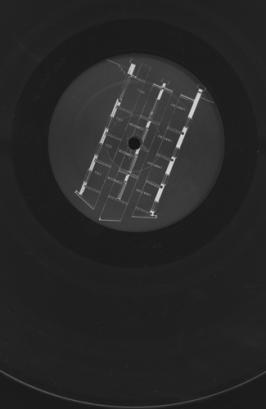
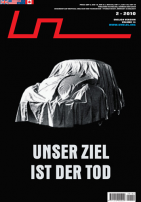


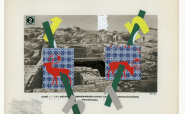
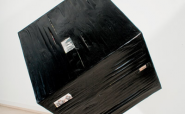
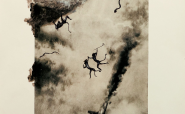
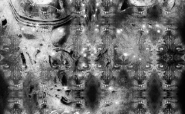
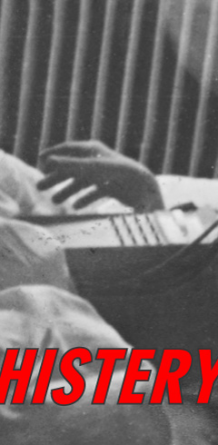













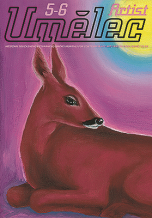



 New book by I.M.Jirous in English at our online bookshop.
New book by I.M.Jirous in English at our online bookshop.
Comments
There are currently no comments.Add new comment